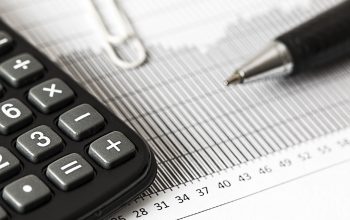If you can't pay your self-assessment bill to HMRC by January the 31st you should follow our advice and get...
HM Revenue & Customs
Nobody likes to pay taxes but they are a necessity in our society. Around 90% of people and business, who are required to pay tax, do so in full and on time. But what happens to the ones that don’t? HM Revenue & Customs (“HMRC”) take non-payment and avoidance of tax very seriously and in an attempt to ensure that all tax is paid when due, they have introduced the Managing Serious Defaulters Programme (“MSD”) (formerly the Managing Deliberate Defaulters Programme).
default
The MSD aims to deter known and potential defaulters from evading tax and also demonstrates to the public that HMRC take tax evasion seriously. The MSD programme was originally set up in 2011, but was adapted in April 2013 to widen the criteria of who would be regarded as a serious defaulter. This ensures that any previous limitations are removed and means that high-risk cases that were previously excluded could now be placed on the MSD programme.
What is a Serious Defaulter
HMRC describe a serious defaulter as follows:
• A person/business charged a penalty for a deliberate offence under specific tax legislation or otherwise identified during a civil investigation as fraud, presenting a continued risk to HMRC
• A person/business who has successfully been prosecuted by the Director of Revenue & Customs Prosecutions or another prosecuting authority for a tax matter
• A person/business who has been charged a Civil Evasion penalty notice for dishonesty
• A person/business who is required to give, and has given, security to HMRC as a guarantee against potential future default
• A person/business whom an Insolvency Practitioner successfully pursues a claim on behalf of HMRC for recovery of money or assets. In simple terms, individuals and businesses who deliberately avoid tax liabilities run the risk of being placed on the MSD programme.
How are Serious Defaulters identified?
Serious default is most easily identified where a penalty has been issued to any individual or business, or where a compliance check has been carried out which has identified tax evasion or other serious non-compliance. Individuals and businesses who repeatedly fail to report and pay their tax will also find themselves being identified as serious defaulters. From 1st April 2013 serious default will also include those who are charged with a penalty for dishonesty, who have given financial security to HMRC for future liabilities or where they have been involved in an insolvency involving serious non-compliance.
What do HMRC monitor under the MSD Programme?
What HMRC choose to monitor is very much dependent on what the defaulter did wrong and how much of a risk they pose. They will also consider the likelihood of whether or not the defaulter will continue to deliberately or dishonestly get things wrong or avoid paying what they owe. HMRC will continue to ensure that all reporting obligations are adhered to and that all liabilities are paid on time across all tax departments. They also have a variety of means to monitor other tax affairs, which may include other taxable activities you have control of or a controlling interest in. They are able to make announced or unannounced visits to a place of business to carry out checks of the books and records, can request additional information or documents be sent with tax returns, complete in depth compliance checks and can also cross check details in your accounts which could include making test purchases or inspecting records of one or more of your suppliers or customers.
How long will the monitoring last?
There is no time constraint on how long the monitoring will last and is subject to HMRC being satisfied you are complying with your tax obligations. Once satisfied, they will write to you to advise you that the monitoring has ceased. However, by way of a guideline, most monitoring will last between two and five years.
What does being placed on the MSD Programme mean for Serious Defaulters?
All individuals and businesses that are placed on the programme will be monitored closely for a period not less than two years and will continue until HMRC is satisfied that the defaulter no longer poses a risk in terms of tax evasion or non-compliance. To demonstrate this, you will be required to file all returns on time and ensure that any payments due to HMRC are paid on time All returns must include a full Statement of Account or they may be classed as unacceptable and may be returned as incomplete if it does not meet the statutory obligation. If a business has deliberately evaded tax of £5,000 or more they will, in addition, be required to provide a copy of the detailed trading and profit and loss accounts, a detailed balance sheet, detailed computations and explanations that identify and explain the nature and amount of any figure contained within the accounts that cannot be vouched for by physical or electronic records. Businesses that are registered for VAT may be required to submit VAT accounts for any and all periods included within the period of the trading accounts required. Not all of the above may be applicable to all defaulters, but each will be advised fully by HMRC as to what they require. The above is not an exhaustive example and there may be other items that HMRC may ask for. Is there right of appeal against inclusion on the MSD programme? The simple answer is no. HMRC will only include individuals and businesses in the programme with serious non-compliance issues. Where can I find further information? You can speak to your accountant who will be able to advise you fully as to your obligations and assist you in preparing the necessary financial statements. You can also visit HMRC’s website at: www.hmrc.gov.uk



